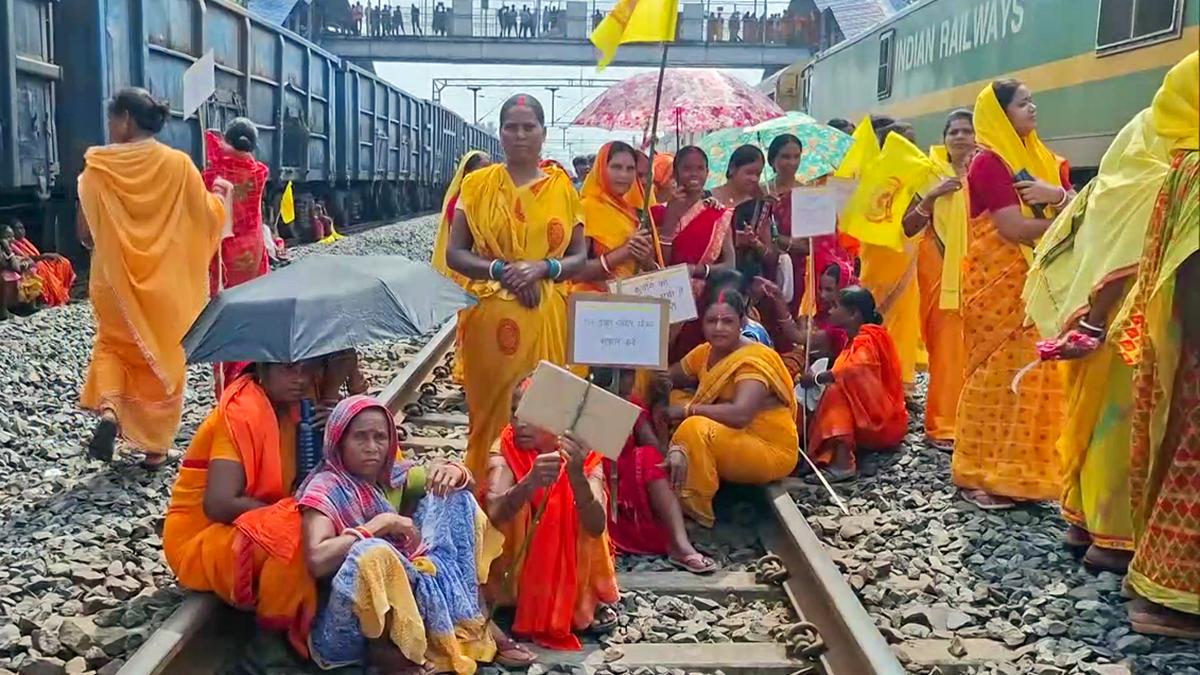
Kurmi community women sit on railway tracks during a protest demanding inclusion in the Scheduled Tribes (ST) category, in Jharkhand’s Hazaribagh on Saturday. Image for the purpose of representation only.
| Photo Credit: ANI
The Adivasi Kurmi Samaj has announced that it will stage fresh protests in West Bengal’s Purulia district on September 25, days after clashes with police at Kotshila railway station on Saturday. The Kurmi community has revived its long-standing demand for Scheduled Tribe (ST) status by blocking railway tracks and roads in several parts of the State ahead of the Assembly elections.
In Purulia, the protests turned violent as Kurmi leaders and community members scuffled with police. Stones were reportedly pelted, while the police baton-charged demonstrators and used tear gas. A large contingent of the Rapid Action Force was also deployed. Several police officials and journalists were injured.
“They arrested 44 of our people, did not even spare the women. Protesting is our basic right. They won’t allow even the basics to us? We will hold fresh protests in Purulia on September 25,” Ajit Mahato, senior leader of the Adivasi Kurmi Samaj from Purulia, told The Hindu on Sunday.
Rail blockades by the Kurmis disrupted train services in parts of Jharkhand and West Bengal, particularly in border areas. Over 50 trains were affected, though the Jharkhand blockade was lifted within a day.
On September 18, the Calcutta High Court termed the rail blockade illegal and unconstitutional, directing the State police to beef up security. The following day, senior police officials reiterated that road and rail blockades would not be permitted and warned of strict action in compliance with the court’s order.
The Kurmi community’s demand for ST status spans decades across the Chota Nagpur Plateau region, which covers West Bengal, Jharkhand and Odisha. Leaders argue that inclusion in the ST list is essential to preserve their cultural identity and safeguard constitutional rights.
Published – September 21, 2025 07:14 pm IST

